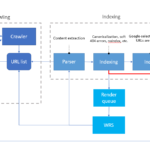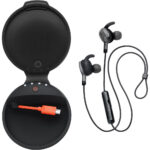How to Track Calories Without Obsession?
By Sanyog, Fitness & Nutrition Consultant, Fittr
Tracking calories can be a powerful tool for managing your nutrition and reaching your fitness goals, but it’s important to do it in a way that feels balanced and sustainable rather than obsessive. Here are some useful tips to help you track mindfully:
1. Set Realistic Goals
Start with a clear understanding of your calorie needs based on your Total Daily Energy Expenditure (TDEE). If fat loss is your goal, aim for a moderate deficit of 10-25% rather than an extreme 40-50% cut. If you’re looking to build muscle, a small surplus of 200-300 calories over TDEE is enough—no need for a massive 1,000-calorie surplus. Sustainable progress beats quick, drastic changes.
2. Use Tracking Tools Wisely
Apps and food diaries can be helpful, but don’t let them control your every bite. Plan your meals daily or weekly and stick to them, rather than constantly tweaking and second-guessing your diet. This way, you stay on track without overthinking every meal.
3. Focus on Portions, Not Just Numbers
Instead of obsessing over every gram, use simple portion control techniques. Visual cues (like hand portions, bowl sizes, or familiar measurements) can help you estimate your intake, especially when you’re traveling or eating out.
4. Plan and Prepare Meals
Planning and preparing meals in advance can reduce the need to constantly track. Prepare balanced meals with a good mix of macronutrients, which can help you stay within your calorie target more intuitively.
5. Prioritize Nutrient-Dense Foods
Whole, nutrient-rich foods like protein and complex carbs will not only keep you full but also make it easier to stay within your calorie goals without micromanaging every detail. Think quality over quantity.
6. Practice Mindful Eating
Pay attention to your body’s hunger and fullness signals. Eating slowly and being present during meals can help you stop when you’re satisfied, making calorie tracking less of a numbers game and more of an intuitive habit.
7. Allow for Flexibility
Life happens! Whether it’s a spontaneous meal out or travel plans, it’s okay to go off plan sometimes. A flexible approach prevents the “all-or-nothing” mindset that can lead to guilt or frustration.
8. Check-In Regularly, Not Constantly
Instead of daily checks, review your progress weekly or biweekly. This approach can reduce stress and promote a broader perspective on your eating habits.
9. Seek Support
If tracking feels overwhelming, don’t hesitate to reach out to a nutrition coach or a supportive community like Fittr. Learning from experienced individuals can help you find a balanced approach that works for you.
Bottom Line
At the end of the day, calorie tracking should serve you, not the other way around. The goal is to build sustainable habits that fit your lifestyle while still helping you achieve your fitness aspirations.
#fittrcoach
By Sanyog, Fitness & Nutrition Consultant, Fittr









